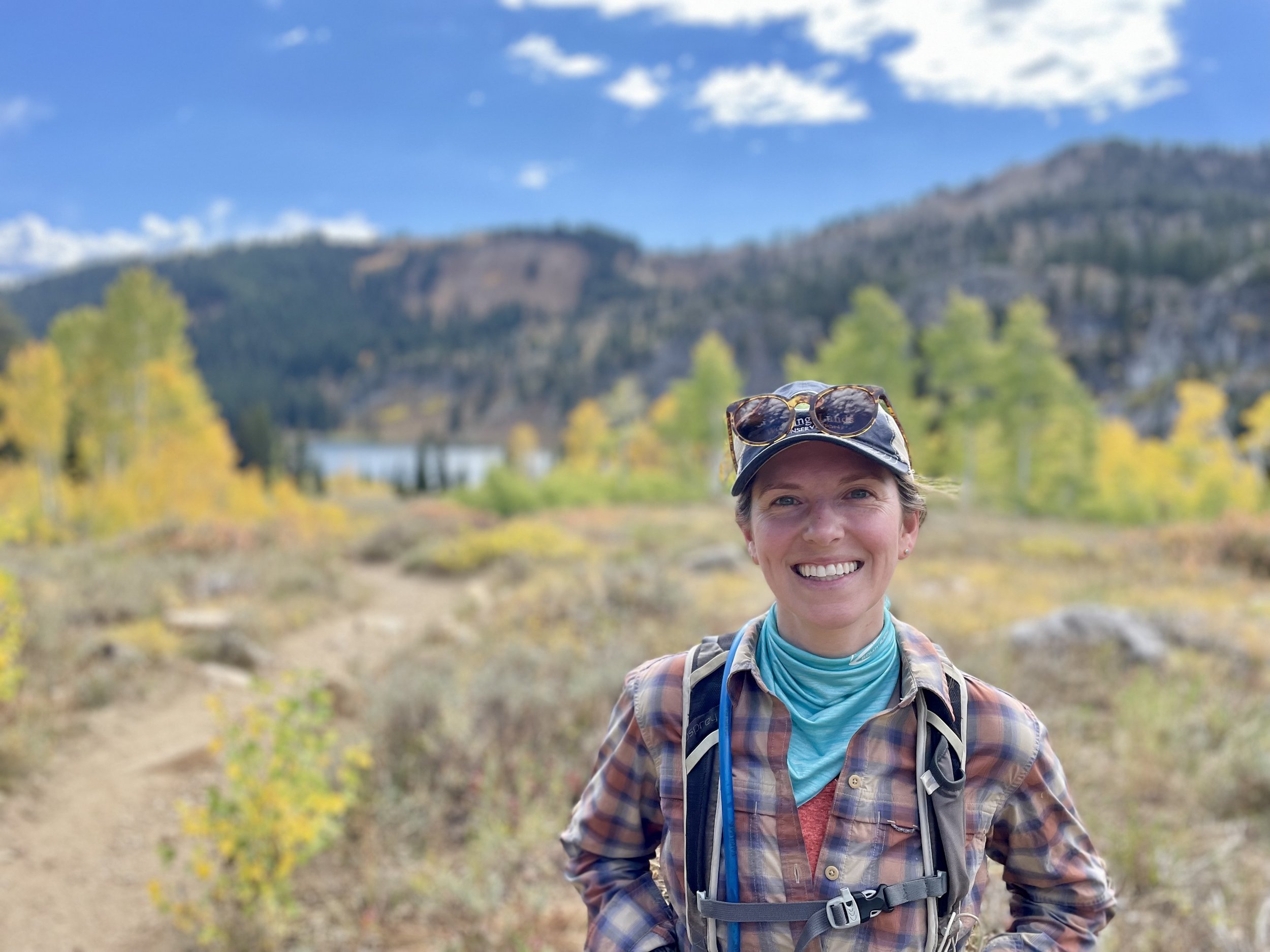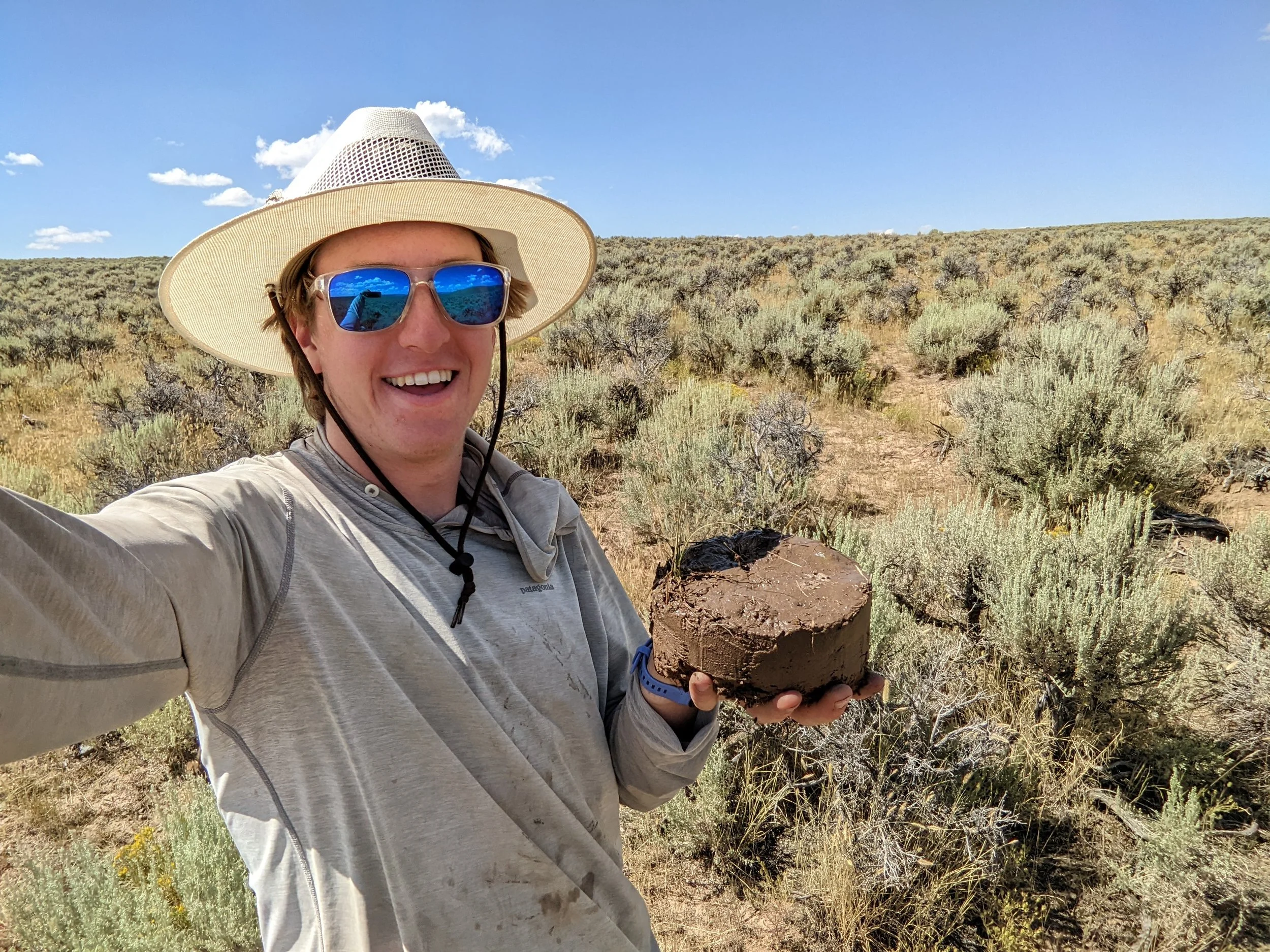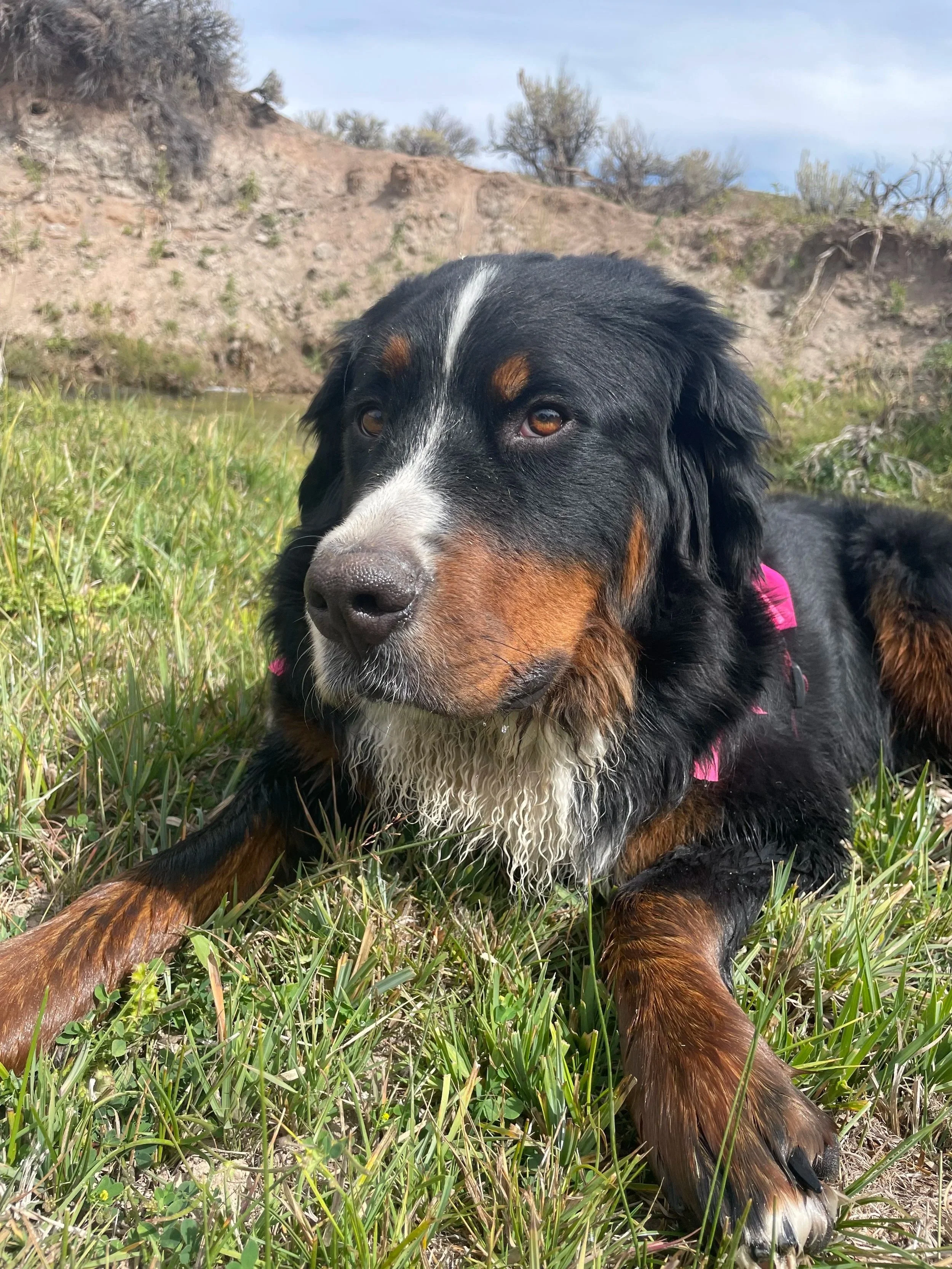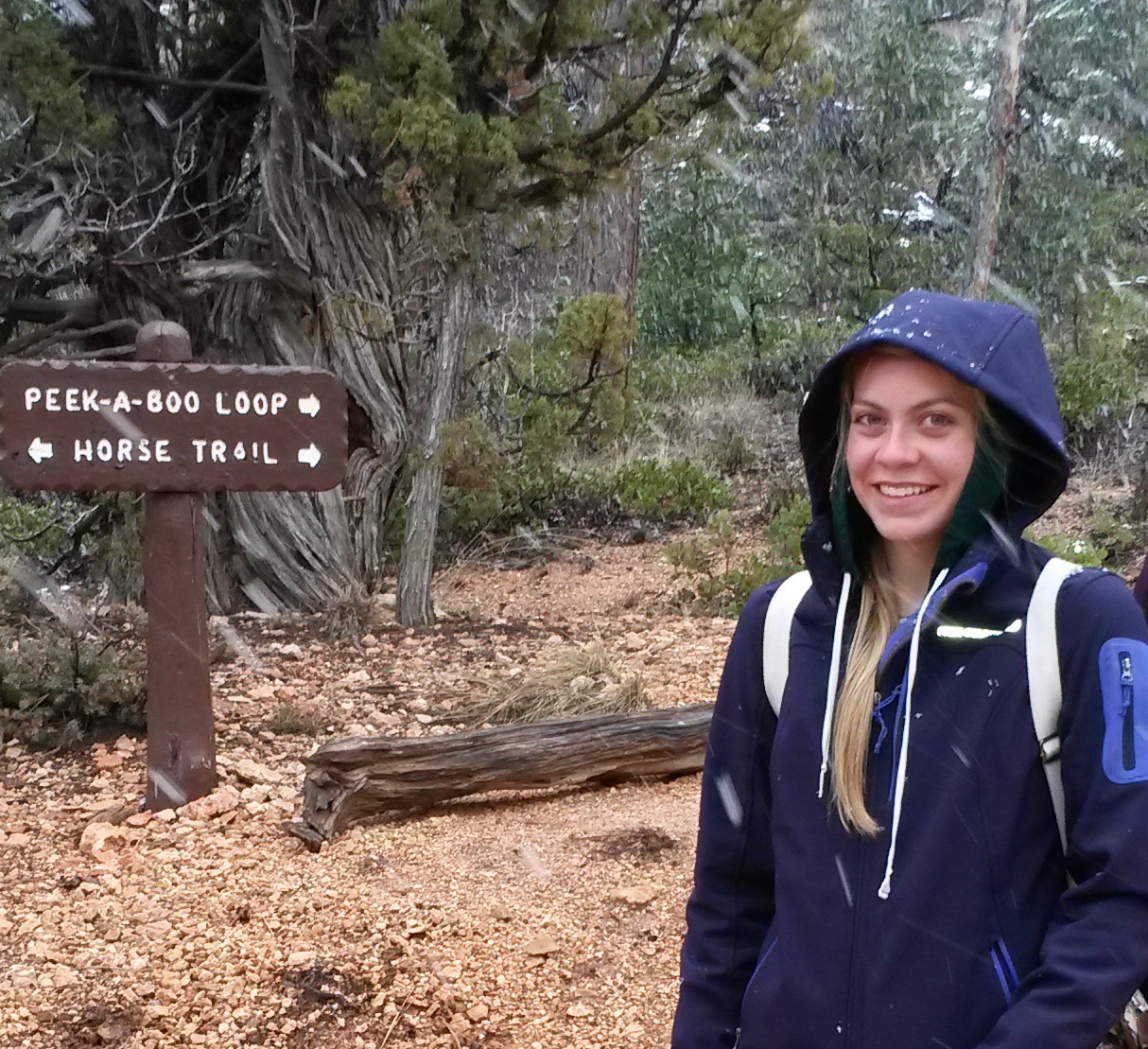Meet the scientists behind Working Lands Conservation:
Dr. Kris Hulvey
Founder and Lead Scientist
-
As an ecologist and founder of WLC, my goal is to improve conservation of US wild and working landscapes by finding science-based solutions to management challenges that require collaborative action among stakeholders. I have over 20 years of experience in ecosystem management, restoration, and the links between biodiversity, ecosystem functioning, and human well-being. I have worked in California grasslands, Australian working lands, the US Channel Islands, Alaska, and the US Intermountain West. For all of this work, I draw on ecological theory to inform field experiments and guide data syntheses, and draw on interdisciplinary experience to develop partnerships with landowners, managers, and other stakeholders leading to novel management outcomes.
Contact: kris@workinglandsconservation.org
Dr. Megan Nasto
Soil Science Program Director
-
As an ecologist and avid user of public lands, Megan is excited to work with stakeholders to balance the many resources public lands provide. Whether these resources are environmental, cultural, recreational, or financial in scope, she strives to provide a quantitative framework for decision-making that benefits all those who call themselves “public land owners”. While Megan has worked in a variety of systems from the Central American tropics to the Rocky Mountain west, she has become increasingly interested in working lands. These lands - and the soil at the heart of them - provide individuals with a means of living, communities with a source of pride, and society with a sense of well-being. As such, Megan values a strong and mutual relationship with Earth, and will work tirelessly to help us all become better stewards of the land.
When Megan isn’t working you can find her enjoying her homestead in rural northern UT with her husband, twin babes, and two pups
Contact: megan@workinglandsconservation.org
Dr. Kendall Beals
Postdoctoral Research Associate
-
Kendall is an ecologist with expertise in plant-soil interactions, microbial ecology, and soil carbon cycling. She has worked in a wide variety of ecosystems throughout the US, including mostly recently Southeastern deciduous forests and Midwestern tallgrass prairies. She is passionate about using rigorous science in conjunction with stakeholder partnerships to solve read-world environmental challenges. Kendall is excited to bring her research expertise to rangeland systems of the Intermountain West. In collaboration with the Lien lab at the University of Arizona, landowners, and conservation practitioners, she is working to identify the effects of restoration on carbon sequestration in rivers and streams on rangelands within Utah, New Mexico, and Arizona. An important goal of this work is to quantify the potential economic value of carbon sequestration that can be expected from various riparian restoration practices using estimated carbon market prices.
Contact: bealsk@arizona.edu
Paige Sargeant
GIS Analayst
-
Paige is an undergraduate student in the Watershed Sciences department at Utah State University. She enjoys the field but specializes in GIS and is currently using remotely-sensed data to develop a protocol for long term riparian monitoring at the Three Creeks grazing allotment. She will also make you a map if you ask nicely. In her spare time, Paige uses geospatial data to research beaver-impacted riverscapes as well as statistical patterns and geomorphic changes in semi-arid streams. Apart from that, she waits for it to snow so she can go cross country skiing again.
Nate Omer
Research Assistant
-
Nate started with us as a summer field technician just looking to try things out. After some quality time on the range, he found himself diving headfirst into the world of ecology and soils, leading to a Bachelor’s in Watershed Sciences and a minor in Soil Sciences from Utah State University. You’ll often find him playing in the dirt, whether it’s outside just for fun, for official business, or processing samples in our lab. He hopes to continue his education one day and is excited to be able to work as a steward for our many beautiful working lands!
Kona
Team Mascot
-
As our team mascot, Kona is expert at boosting the mood in the office and on the range. Her primary responsibilities include taking naps, getting belly rubs, and being adorable. This seminal work is a major contribution to our study and support of working lands.
Past Employees
Elana Feldman: Project Manager (2023-2025)
Elana is an ecologist with a background in invasive plant management and native restoration across diverse ecosystems. She brought a strong interest in people–land relationships and collaborative natural resource management to her work with us.
Katie Siesel: Development and Communications Coordinator (2023-2025)
Katie worked at the intersection of ecology, science communication, and partnership-building. She supported collaborative approaches to working lands conservation with a focus on connecting people, science, and place.
Amie Farr: Field Technician (2025)
Amie Farr is currently an undergraduate at Utah State University studying Wildlife Ecology and Management. She loves the outdoors and has a passion for sharing her love of nature and science.
Lily Hymas: Field Technician (2025)
Lily is a student at Utah State studying Conservation and Restoration Ecology. She has always loved the outdoors and spends her free time running, hiking, skiing, biking and reading.
Dr. Jessica Murry: Soil Scientist (2024)
Jessica is moving on to an exciting new role as a postdoctoral researcher at the University of Illinois, where she will continue her work on soil organic carbon dynamics and ecosystem services. We’re grateful for her contributions to our organization and wish her all the best in her next chapter!
Mercy Smith: Field Technician (2024)
Mercy is currently studying the Management and Restoration of Aquatic Ecosystems at Utah State University. You can find Mercy trail running, hiking, crocheting, taking photos, and playing guitar.
Maggie Edwards: Field Technician (2024)
Maggie is an undergraduate student studying Conservation and Restoration Ecology at Utah State University. She is from northern Utah and has always loved being surrounded by nature. She first got interested in natural resources in high school and has spent all her summers since eagerly involved in fieldwork.
Jamela Thompson: Field Technician (2024)
Jamela is a crew member dedicated to ecological fieldwork, research, and GIS applications that facilitate adaptive land management and collaborative partnerships in the Intermountain West. She received her M.S. in Ecology and a GIS Certificate from Utah State University in the Fire Ecology Lab. Jamela’s experience working in western ecosystems includes her thesis research on fuel treatment effectiveness on public lands in Utah, GIS roles on projects studying sagebrush conservation and fire effects on aquatic insects, and ecological monitoring for the Great Basin Institute and National Park Service. She looks forward to contributing to our projects while developing a deeper understanding of working lands
Paige Lewis: Soils Crew Lead (2023, 2024)
Paige graduated from Colorado State University with a bachelor’s degree in Ecosystem Science and Sustainability and a minor in Construction Management. She is eager to continue her education through research opportunities, and hopes to return to school to pursue a master’s program. Soil health, climate change, and sustainability are specific fields of study that interest her.
Jessie Danninger: Project Manager (2018-2023)
Jessie was a founding team member of Working Lands Conservation and integral to our operations and data collection programs. She has since moved to a position at the Utah Department of Natural Resources, Division of Forestry, Fire, and State Lands. We appreciate the passion, expertise, and dedication she brought to our team and look forward to seeing her future contributions to the field!
Anthony Villalobos: Field Technician (2023)
Anthony is currently pursuing a Bachelor degree at Utah State University in Conservation and Restoration Ecology. He was born and raised in Salt Lake City, Utah where he has been cultivating a love for the outdoors and natural resources since he was a child.
Taylor Jacobson: Field Technician (2021, 2023)
Taylor is currently a student at Utah State University studying Rangeland Ecology and Management. She is originally from Randolph, and has personal ties to Three Creeks. Taylor enjoys working on her family's cattle ranch and exploring the outdoors with her friends and dogs. She is very excited to be working in the field this summer!
Logan Ballard: Vegetation Crew Lead (2022), Field Technician (2021)
Logan will be starting his junior year, studying Rangeland Ecology and Management. He is pursuing a Bachelor's Degree at Utah State University and is excited to work in the natural resources field. He grew up ranching in Nevada and has always had a passion for the outdoors.
Chase Gunnell: Soils Crew Lead (2022)
Chase graduated from Utah State University with a bachelor's degree in Wildlife Ecology and Management and minors in GIS and German. Since his time at WLC, he has worked with USU Extension on the design and development of EcoRestore Utah. This program offers state-specific ecological restoration resources for a variety of stakeholders
Nathan Omer: Field Technician (2021 - 2022)
Nate is an undergraduate student at Utah State University in the Management and Restoration of Aquatic Ecosystems program. Over many years, Nate has developed a special appreciation for rivers, lakes, and wildflowers which has led him to his field of study and what he hopes to be a career path in the places that he loves.
Kasen Lentz: Field Technician (2022)
Kasen graduated from Snow College with an Associates of Science with an emphasis in veterinary medicine. He is currently enrolled at Utah State University, studying Wildlife Ecology and Management.
Kyle Todecheene: Field Technician (2021)
Kyle graduated from Utah State University with a Management and Restoration of Aquatic Ecosystem degree with a minor in GIS. After working with WLC, Kyle took a job installing beaver dam analoges (BDAs) with a local restoration consulting firm.
Kaylee Long: Field Technician (2022)
Kaylee is an undergraduate student at Utah State University studying Conservation and Restoration Ecology with a minor in Mathematics. She has always loved being outside and learning and is excited to learn more about and work in natural resources.
Isaac Rath: Field Technician (2022)
Isaac graduated from Cal Poly Humboldt with three associates, five certificates, and a Bachelor of Science in Wildlife Management and Conservation. After his summer on the WLC crew, Isaac moved to Yellowstone National Park where he now works as a wildlife guide. In the future, he plans to return to school to continue working towards a Masters and PhD in Animal Behavior.
Elise Riley: Crew Lead (2020), Field Technician (2019)
Elise graduated from Utah State University with a Bachelor’s degree in Forest Ecology and Management with minors in Sustainable Systems and Horticulture. She completed her own undergraduate research studying how climate and environmental changes have impacted the phenology of plants in forest meadows.
Chelise Dever: Field Technician (2020)
Chelise is a graduate from Utah State University with a Bachelors of Science in Geography with a human-environmental emphasis. She is interested in furthering her education in Wildlife Biology and Botany.
Hanna Kirkland: Field Technician (2020)
Hanna graduated from Utah State University with a degree in Wildlife Ecology and Management. She is currently working as a field biologist monitoring levee construction projects in Sacramento, CA.
Megan LeMaire: Crew Lead (2019), Field Technician (2018)
Megan graduated from Utah State University with a Bachelor's of Science in Environmental Studies with an emphasis in Public Health. After working for SLC: Public Lands, Megan moved to Oregon and found an interest in User Design Experience. She is currently working at a wilderness summer camp while she completes a UX certification.
Laura Beck: Field Technician (2019)
Laura has an Associate’s Degree in Environmental Studies and finished a Bachelor’s Degree in Conservation and Restoration Ecology at Utah State University in 2021. She worked as a crew member for the Texas Conservation Corps and is currently pursing a masters degree at Texas A&M-Kingsville in Range and Wildlife Science.
Kiersten Orton: Field Technician (2019)
Kiersten graduated from Utah State University with a Bachelor’s degree in Watershed and Earth Systems with a minor in Geographic Information Sciences.































